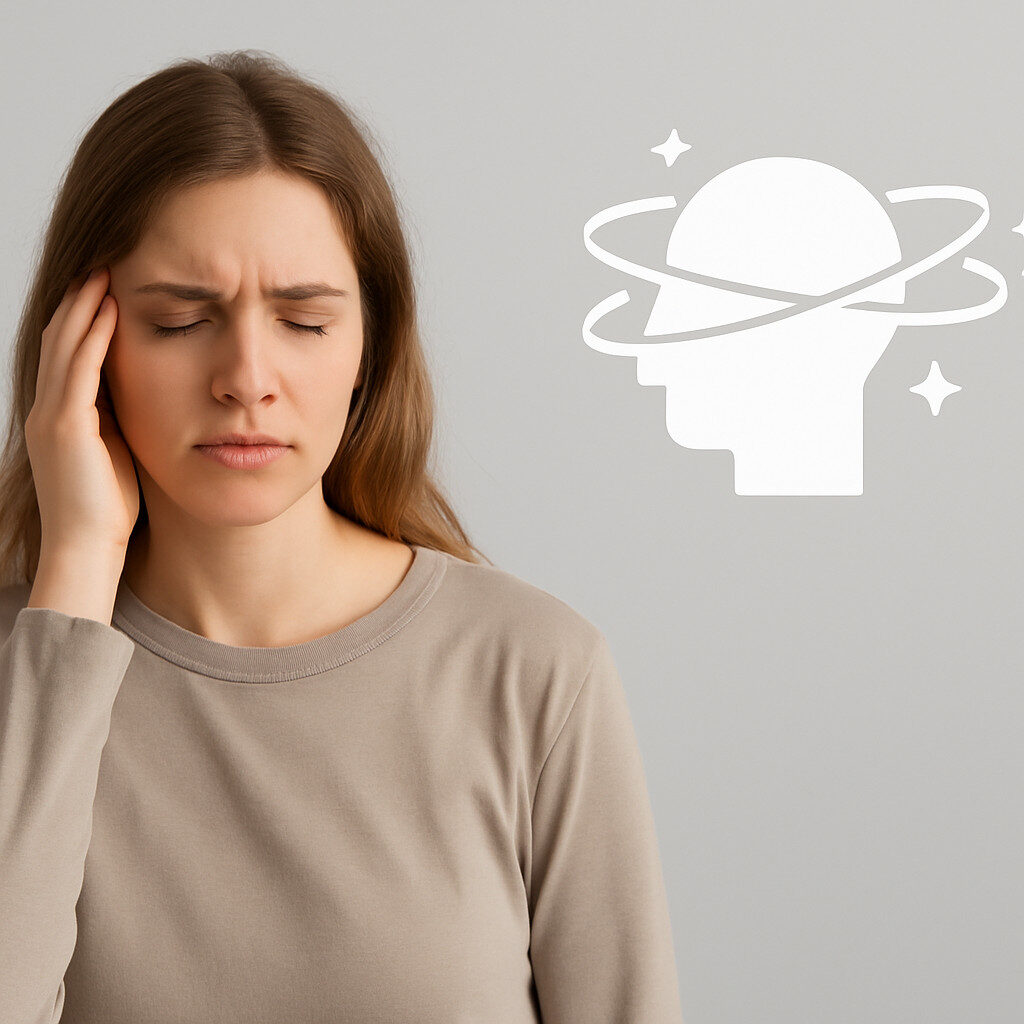Understand common causes of fatigue with lightheadedness and how to treat it.
We’ve all felt it—that drained, head-swimming sensation where your energy feels wiped out and your balance feels just a bit off. Fatigue and lightheadedness are two very common symptoms that often appear together, especially in women during their menstrual cycle. But despite how common they are, these symptoms can also be misunderstood or brushed off—and in some cases, they can signal something more serious.
These sensations are especially noticeable when dealing with fatigue with your period, a time when the body is more vulnerable to blood loss, nutrient shifts, and hormonal changes. Let’s break down what’s happening, when it’s normal, and when it’s time to seek help.
Fatigue vs. Lightheadedness: What’s the Difference?
Although they often happen together, fatigue and lightheadedness are distinct:
-
Fatigue is an ongoing lack of energy, not easily fixed by rest. It impacts mental clarity, physical stamina, and emotional resilience.
-
Lightheadedness is the sensation of being off balance, woozy, or on the verge of fainting. It can be mild or intense and is sometimes mistaken for dizziness or even anxiety.
Because these symptoms overlap with common conditions like allergies, adrenal issues or blood sugar fluctuations, they can easily be dismissed or misattributed.
Did You Know? Adrenal Fatigue Can Cause Both Fatigue and Lightheadedness
Chronic stress can wear down your adrenal glands, leading to what’s known as adrenal fatigue. When cortisol levels drop too low, your body may struggle to regulate blood pressure—especially when standing up quickly—causing lightheadedness. At the same time, low cortisol means less resilience, more energy crashes, and deeper fatigue. Supporting your adrenals with rest, blood sugar balance, and stress management can help improve both symptoms. Chronic stress can wear down your adrenal glands, leading to what’s known as adrenal fatigue.
Fatigue with Period: Why It Happens
Many women experience fatigue with their period, and there are solid physiological reasons for it.
1. Blood Loss & Iron Deficiency
Even short episodes of heavy bleeding can reduce blood volume, leading to a dip in oxygen delivery to the brain and muscles. This drop can make you feel weak, tired, and dizzy. Over time, it can also result in iron-deficiency anemia, a common cause of fatigue.
2. Dehydration During Menstruation
Not commonly discussed, but bleeding can dehydrate you, especially if you’re not drinking enough fluids or replenishing lost minerals. Even mild dehydration can lead to fogginess, lightheadedness, and fatigue.
3. Nutrient Depletion
Periods also deplete important nutrients like:
-
Iron – essential for energy and oxygen transport
-
Magnesium – helps regulate muscle, nerve, and fluid balance
-
B12 – vital for red blood cell formation and brain function
Low levels of any of these can increase both fatigue and dizziness.
Foods That Support Energy During Your Period
One of the best ways to combat these symptoms is by eating a nutrient-dense diet, especially foods high in iron:
-
Red meat (beef, liver)
-
Dark leafy greens (spinach, kale)
-
Lentils, black beans, chickpeas
-
Pumpkin seeds, tofu, quinoa
-
Dried apricots
-
Eggs
Combine with vitamin C-rich foods (like oranges, bell peppers, strawberries) to improve iron absorption.
Also, aim to drink half your body weight in ounces of water daily and consider adding trace minerals or a pinch of sea salt to your water to support hydration.
When to Be Concerned
Mild symptoms may be manageable, but know when to seek help:
Go to urgent care or the ER if you:
-
Feel like you might pass out
-
Notice rapid or pounding heartbeat
-
Have ongoing or heavy bleeding
-
Are confused or unable to focus
-
Have extreme fatigue or weakness
-
Feel short of breath
These symptoms may indicate severe blood loss, anemia, low blood pressure, or dehydration—all of which can become dangerous if ignored.
Takeaway: Listen to Your Body During Your Period
If you notice fatigue with your period—especially when paired with lightheadedness—it’s a sign your body needs attention. While it may be “common,” it is not something you should ignore. From blood loss and nutrient depletion to hidden dehydration, these issues can build up and disrupt your quality of life.
With the right nutrition, hydration, and awareness, you can reduce monthly symptoms and avoid the extremes that lead to urgent care visits. If your fatigue or dizziness is severe or worsening, don’t wait—your body is asking for help, and it’s okay to listen.



